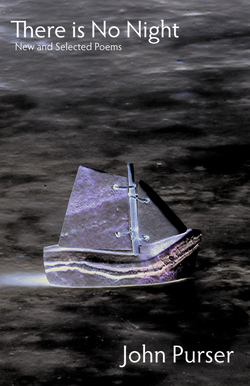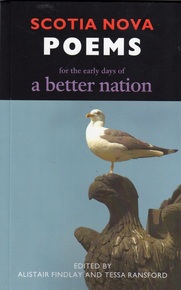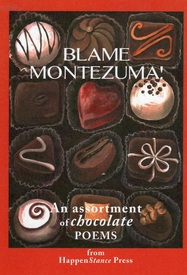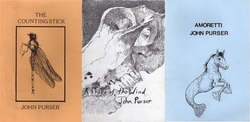Poetry

John's new collection, There Is No Night (Kennedy & Boyd) is now available from the Store on this site and from the publishers and on Amazon, price £15.00. p&p is included for the EU. All other destinations, add £7.00.
"Steeped in the natural world . . . John Purser's There Is No Night . . . generously and penetratingly illumines the arts, religion, philosophy and the interplay of affections. Rigorously crafted and themed, these poems radiate deep insight and wisdom." Stewart Conn, The Herald 29.11.14.
". . . various, and inescapable, the world John Purser makes for us in his poems, as in his music and his scholarship, is archipelagic, characterised by diversity and depths, bright sunlit perceptions and profundities of insight into the nature of the earth itself . . . " (Professor Alan Riach, Introduction)
"an admirable volume of work from the poet and scholar also responsible for the ground-breaking BBC series Scotland's Music." (Lesley Duncan, The Herald, November 1, 2014)

Luath Press launched Scotia Nova in Edinburgh. John has two poems in this collection - Scotland's Thistle and Michael Marra, which he read at the launch alongside Professor Alan Riach, amongst several others. 
HappenStance Press published a splendid assortment of chocolate poems entitled "Blame Montezuma!". They included one I submitted and called it Bedtime. Quite right of them, too. If you are a chocoholic, you should have this book and debate whether it increases your consumption or, as a kind of substitute therapy, reduces it. |

Many moons ago John published three small collections with Aquila. In 1976 The Counting Stick won a Scottish Arts Council New Writing Award. A Share of the Wind was published in 1980, and Amoretti in 1985. Since then, John has published in many poetry magazines, in Scotland and abroad. “John Purser is not only a fine composer and musician, he’s an accomplished poet who has been writing powerful, weighty poetry for at least thirty years. There’s a seriousness, a gravitas to his work which is most impressive.” (Alan Spence, Poetry Online, Best Scottish Poems 2007, www.spl.org.uk/best-poems/index.htm) “ . . a vocational poet . . whose plumbing of intimate emotional depths has a satisfying intellectual toughness . . . his natural imagery is not simply decorative, but operates at a metaphoric level. His free forms and their stresses achieve a fine rhythmic flow . . the pervading note is of affirmation: neither glib nor cosy, but hard-won in the face of experience” Stewart Conn, Words “Conn is both rural and urban, learned and simple, delightful and humble before the unanswerable. Similar qualities inform the work of John Purser (1942-) in Skye and Roderick Watson (1943-) in Stirling, both of whom have produced memorable work, impossible to categorise, directly engaged by the intuitions, the dreams, of political identity; both sustained by hard material understanding of what William Carlos Williams called the ‘thingness’ of the world and the transmissions – musical, emotional, that cross between the ‘things’. (Alan Riach, “The Poetics of Devolution”, In: McGuire, M., and Nicholson, C., (Eds.) The Edinburgh Companion to Contemporary Scottish Poetry, Edinburgh 2009, p.17.) “Music is the essence of his poem, ‘In Antalya’, where a chance encounter prompts a gentle and profound observation of a fact far too easily forgotten or obscured: something in the human story arises from beyond humanity, in matter itself, and whatever we mean by ‘spirit’ – the music of the spheres.” (Ian Brown and Alan Riach, (Eds.) Lion’s Milk / Aslan Sütü, Kilkerran 2012, p.xii and pp.20-21.) John Purser’s three family poems, which also appear in this edition [Carapace 57 2006], are deeply moving because of the simplicity with which it is written. Although they are written as a unity, each stands on its own legs; an invitation to the small, a cameo in miniature. The poem dealing with his grandson Thomas’s birth, plucks at the heartstrings. And it is in the stylistic simplicity that Purser’s communicative strength lies. At his first sight of his grandson, he says, for example:- “little king, you are still free / to cry out as you will, / to claim your claims, / your stretched arm a sceptre, / your head an orb, crowned / with the pulse of thought . . .” Purser’s poems remind me strongly of the parent-child relationship that the Greek American poet Nick Nikias describes so accurately. And I find it refreshing that these poems come precisely from male loins!” (Translated from the Afrikaans of André van Vuuren, Digtersjoernaal gedy, spog met 57ste uitgawe, 29.05.2006.) |
